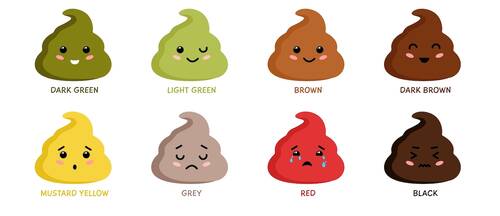1. Unexplained Weight Loss:
Losing weight without trying can be an early sign of various cancers, particularly those affecting the digestive system, like stomach, pancreatic, or colon cancer. If you've shed a significant amount of weight without changing your diet or exercise routine, consult your healthcare provider.
2. Persistent Fatigue:
Feeling excessively tired or weak, even after getting adequate rest, may be an early sign of cancer. It's essential to distinguish cancer-related fatigue from typical tiredness, so if fatigue is persistent and unexplained, seek medical evaluation.
3. Skin Changes:
Skin changes can indicate various types of cancer. Pay attention to moles, warts, or freckles that change in size, shape, color, or texture. Skin cancers, including melanoma, can often be detected early through regular skin checks.
4. Unusual Bleeding:
Unexplained bleeding can be a warning sign. This includes blood in the urine or stool, bleeding between periods, or any other unusual bleeding. Changes in bowel or bladder habits should also be discussed with a healthcare professional.
5. Persistent Pain:
Chronic pain that doesn't have a clear cause should be evaluated. Bone pain, headaches, abdominal discomfort, and back pain can sometimes be associated with cancer, so don't dismiss unexplained pain.
6. Changes in Lumps or Tumors:
If you notice a lump or bump anywhere on your body that's growing or changing in any way, it's important to get it checked. Breast lumps, testicular changes, or any new growths should not be ignored.
7. Difficulty Swallowing:
Persistent difficulty swallowing, known as dysphagia, could be a symptom of esophageal, throat, or stomach cancer. If you experience this symptom, consult a healthcare professional.
8. Persistent Cough or Hoarseness:
A cough or hoarseness that lasts for an extended period, especially if you're a non-smoker or an ex-smoker, can be an early sign of lung or throat cancer. Don't dismiss respiratory changes.
9. Changes in Bowel Habits:
Alterations in bowel habits, such as persistent constipation, diarrhea, or narrowing of stools, can sometimes be linked to colorectal cancer. If you notice consistent changes, seek medical advice.
Remember that these signs do not necessarily indicate cancer, but they should prompt you to consult a healthcare provider for a thorough evaluation. Early detection and treatment can make a significant difference in the outcome of cancer, so it's crucial to be proactive about your health and report any unusual symptoms promptly. Regular check-ups and screenings can also play a pivotal role in cancer prevention and early detection, so don't skip your routine healthcare appointments. Your health and well-being are worth the vigilance.












